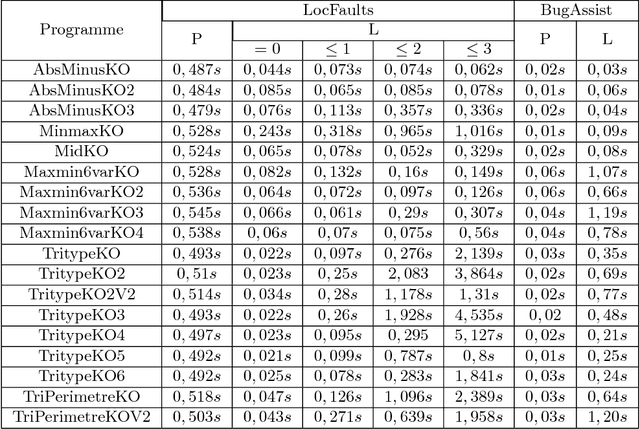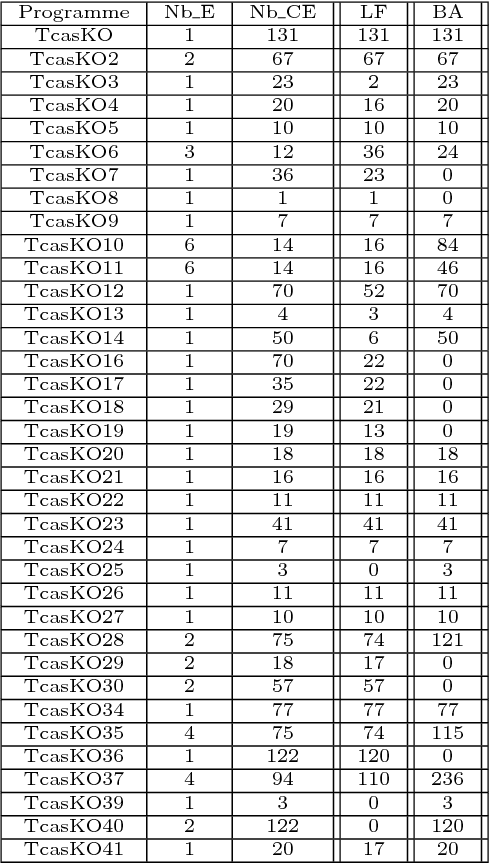Hélène Collavizza
I3S
Une approche CSP pour l'aide à la localisation d'erreurs
Apr 25, 2014


Abstract:We introduce in this paper a new CP-based approach to support errors location in a program for which a counter-example is available, i.e. an instantiation of the input variables that violates the post-condition. To provide helpful information for error location, we generate a constraint system for the paths of the CFG (Control Flow Graph) for which at most k conditional statements may be erroneous. Then, we calculate Minimal Correction Sets (MCS) of bounded size for each of these paths. The removal of one of these sets of constraints yields a maximal satisfiable subset, in other words, a maximal subset of constraints satisfying the post condition. We extend the algorithm proposed by Liffiton and Sakallah \cite{LiS08} to handle programs with numerical statements more efficiently. We present preliminary experimental results that are quite encouraging.
Comparison between CPBPV, ESC/Java, CBMC, Blast, EUREKA and Why for Bounded Program Verification
Aug 11, 2008



Abstract:This report describes experimental results for a set of benchmarks on program verification. It compares the capabilities of CPBVP "Constraint Programming framework for Bounded Program Verification" [4] with the following frameworks: ESC/Java, CBMC, Blast, EUREKA and Why.
CPBVP: A Constraint-Programming Framework for Bounded Program Verification
Jul 15, 2008



Abstract:This paper studies how to verify the conformity of a program with its specification and proposes a novel constraint-programming framework for bounded program verification (CPBPV). The CPBPV framework uses constraint stores to represent the specification and the program and explores execution paths nondeterministically. The input program is partially correct if each constraint store so produced implies the post-condition. CPBPV does not explore spurious execution paths as it incrementally prunes execution paths early by detecting that the constraint store is not consistent. CPBPV uses the rich language of constraint programming to express the constraint store. Finally, CPBPV is parametrized with a list of solvers which are tried in sequence, starting with the least expensive and less general. Experimental results often produce orders of magnitude improvements over earlier approaches, running times being often independent of the variable domains. Moreover, CPBPV was able to detect subtle errors in some programs while other frameworks based on model checking have failed.
 Add to Chrome
Add to Chrome Add to Firefox
Add to Firefox Add to Edge
Add to Edge